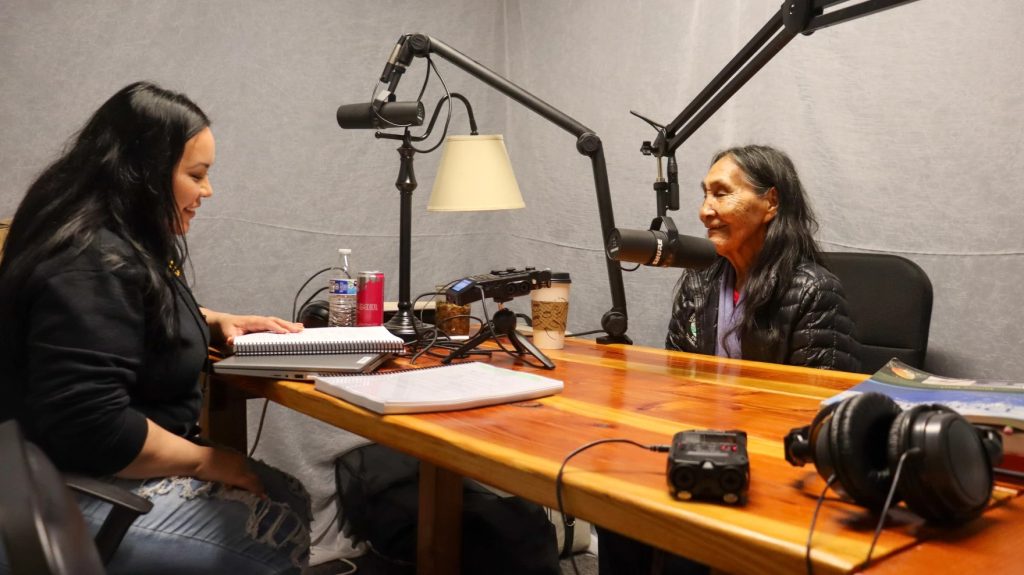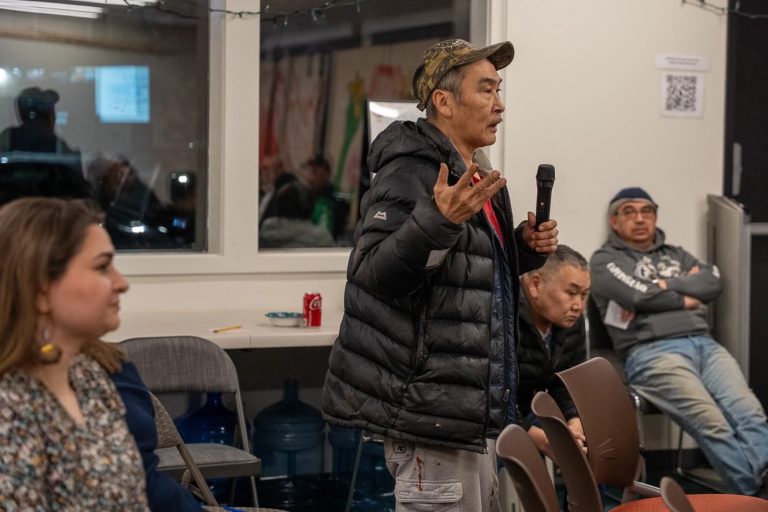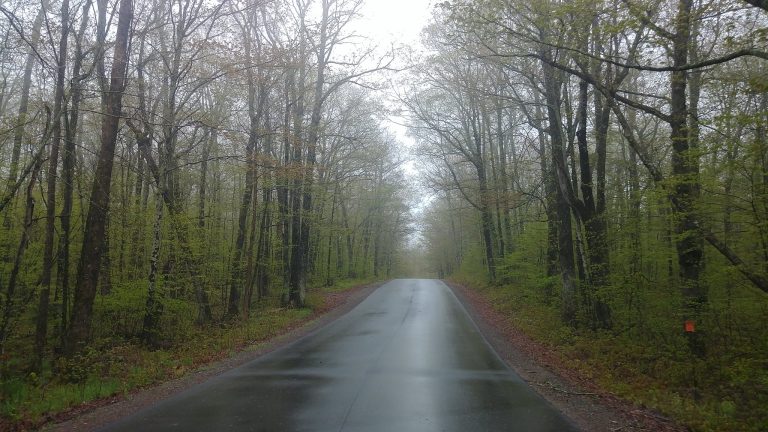Podcast: Play in new window | Download | Embed
Photo: Andrea Ivanoff, left, and Helen MacLean during a recent recording session for the Kenaitze Indian Tribe’s new Dena’ina language-learning app. (Hunter Morrison / KDLL)
The Dena’ina people have lived on Alaska’s Kenai Peninsula for thousands of years, but today, the group’s Indigenous language isn’t spoken as widely as it once was.
That’s why the Kenaitze Indian Tribe is launching interactive language-learning software to help people learn Dena’ina words and phrases.
As KDLL’s Hunter Morrison reports, app developers say the language revitalization tool is key to preserving the health of the Indigenous community.
“Okay, today is June 4, 2025. This is the verb stem dictionary page 553.”
In a small recording studio at the tribe’s administrative office in Kenai, language transcriptionist Andrea Ivanoff runs through the book’s Dena’ina phrases.
“This one’s a long one. [Dena’ina phrase]”
She’s seated across from her grandmother and longtime Dena’ina language speaker Helen MacLean, who repeats the Dena’ina phrase.
Ivanoff: “Overflow ice that formed into a bluff.”
MacLean: “Mhm.”
They’re recording content for CAN8, Kenaitze’s new language-learning computer application. It’s part of the tribe’s cultural revitalization efforts.
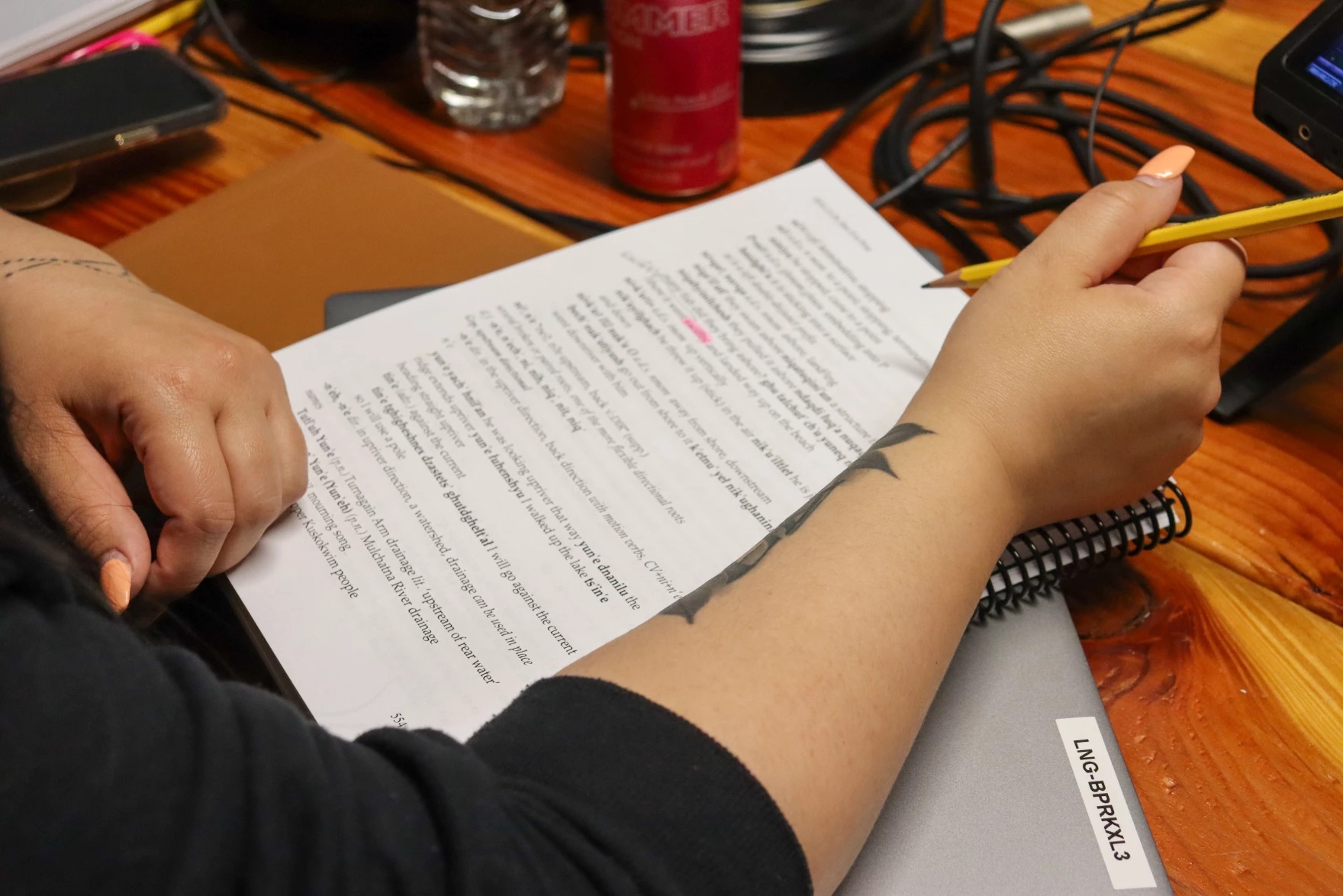
Andrea Ivanoff runs through a book of Dena’ina phrases at a recording session for the Kenaitze Indian Tribe’s new language learning application. (Photo: Hunter Morrison / KDLL)
Joel Isaak, Kenaitze’s director of language and cultural preservation, is also the language app’s project manager.
“For adult learners, there’s no access point to learn Dena’ina.We’re hoping that this application will help foster, really a love and interest and dedication to learning Dena’ina language.”
The Kenaitze application, which is still in its beta testing phase, covers everything from basic Dena’ina vocabulary to full sentences.
The 20-unit program is loaded with interactive games, spelling tests, and more.
Eight Dena’ina people developed the app, including MacLean.
MacLean grew up speaking Dena’ina and says her language is part of her identity.
“My grandma, grandpa, and our uncle, they told me, ‘You better not lose our words, you guys have to keep it.'”
Dena’ina people, like Isaak, say preserving the language is important because much of their culture has been lost through the deliberate suppression of Alaska Native traditions and customs.
“This is core to our identity and it’s also critical for our health and who we are as people. So it helps heal the community by bringing health back to this place that we all call home.”
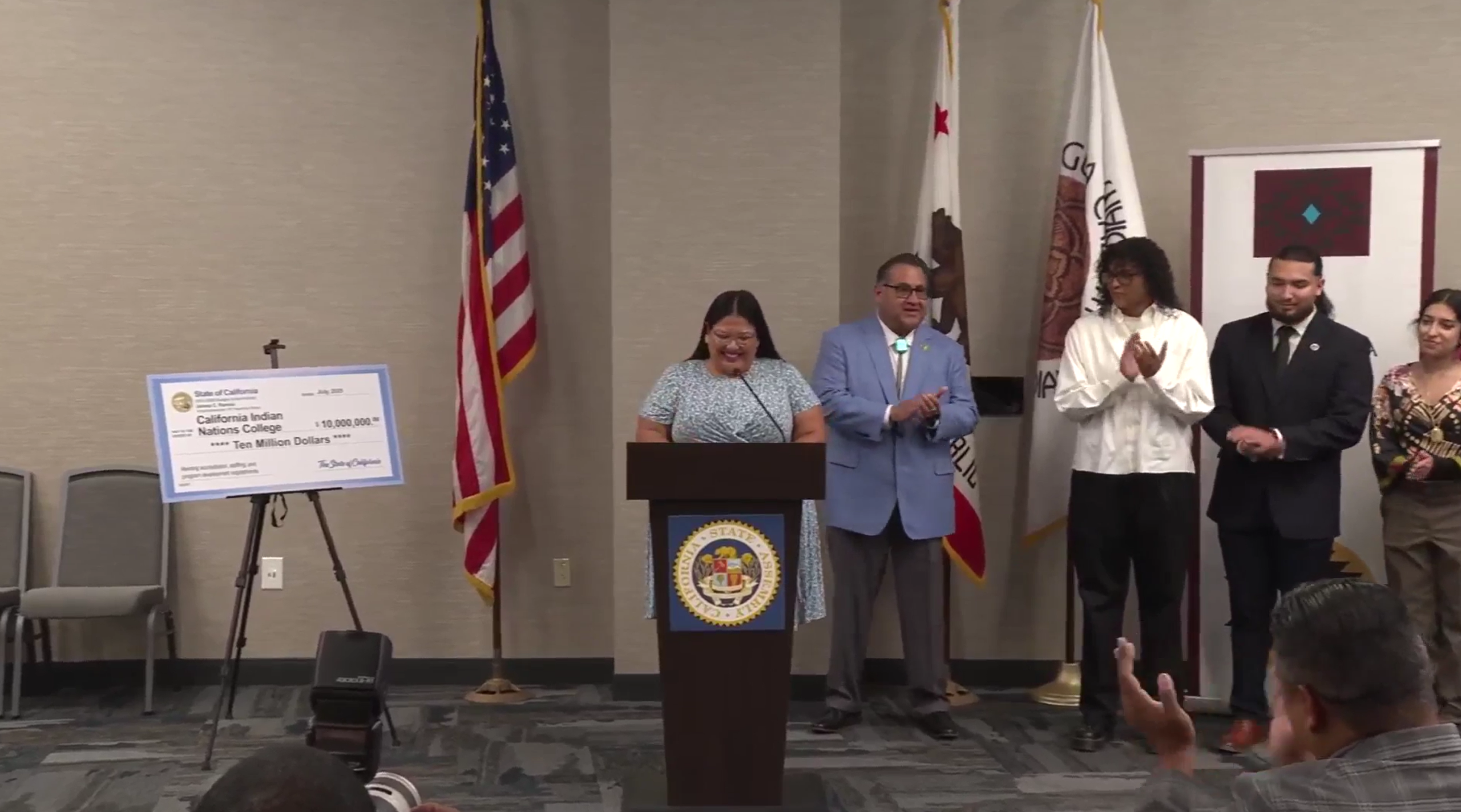
(Courtesy Asm. James Ramos / Facebook)
Officials and students at California Indian Nations College joined tribal leaders and lawmakers Friday in Palm Springs, Calif. to celebrate a $10 million state investment in the school to help with efforts for it to become the only federally accredited tribal college in the state.
Celeste Townsend, president and CEO of the college, says tribal colleges and universities uplift their communities, honor cultural knowledge, and foster student success.
“For generations, the absence of a tribal college in California meant our students were left without a place that truly honored who they are, but today, with CINC’s accreditation and expanding presence, that reality is changing. Now, Native and non-Native students have a place to pursue their academic goals in a space that is respectful and rooted in cultural values that sustain our First Peoples.”
California Indian Nations College is a two-year college located in Palm Desert.
Assemblymember James Ramos (Serrano/Cahuilla/D-CA) advocated for the state funding.

Conceptual rendering of New Commanders Stadium. (Courtesy D.C. Government / Wikimedia)
President Trump is threatening to hold up a stadium deal for the Washington football team over its name, the Associated Press reports.
Trump posted on his social media site Sunday saying he wants the NFL team to restore its former R-word name. He also wants the professional Cleveland baseball team to restore its former name.
Native groups, including the National Congress of American Indians, have long advocated for the end of the use of Indian mascots and logos in sports.
Get National Native News delivered to your inbox daily. Sign up for our daily newsletter today.
